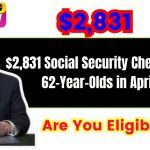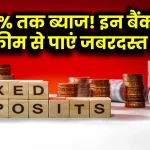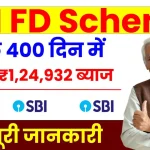$1 Million Bicentennial Quarter: The 1976 Bicentennial Quarter is one of the most intriguing coins in U.S. history, and some rare variations could be worth up to $1 million! If you have a quarter with the iconic drummer boy design in your change jar, you might want to take a closer look. Rare errors, special mint marks, and silver compositions make some of these coins highly valuable.

In this guide, we’ll break down how to identify valuable Bicentennial quarters, what makes them special, and how you can determine whether you have a hidden treasure in your collection. We will also explore the history of the coin, specific error types, how to properly grade and store valuable quarters, and insider tips from experienced coin collectors.
$1 Million Bicentennial Quarter
| Feature | Details |
|---|---|
| Year | 1976 Bicentennial Quarter |
| Rare Variations Worth | Up to $1,000,000 |
| Mint Marks to Look For | “S” (San Francisco Mint) Silver Proof, Rare “D” and “P” Mint Errors |
| Errors That Increase Value | Doubled die, off-center strikes, wrong planchet, full drum lines |
| Material Composition | Copper-nickel clad & 40% silver |
| Highest Auction Sale | Over $1 million for a rare mint error |
| Where to Sell | PCGS, NGC, Heritage Auctions, eBay |
| Official Coin Grading | PCGS, NGC |
The Bicentennial Quarter remains a beloved collector’s item, but some are worth far beyond their face value. If you own one, checking its mint mark, weight, and condition could reveal a hidden fortune. Get your coin graded by PCGS or NGC, and you might have a collector’s dream worth thousands—or even a million dollars!
History of the Bicentennial Quarter
The United States Mint released the Bicentennial Quarter in 1975 and 1976 to celebrate the country’s 200th anniversary of independence. The coin was part of a special Bicentennial coin program, which also included the half dollar and dollar coins. Unlike regular quarters, these special editions bear the dual date “1776-1976”, signifying the nation’s 200-year milestone.
Designed by Jack L. Ahr, the reverse of the Bicentennial Quarter features a Colonial drummer with a torch of victory surrounded by 13 stars. The obverse side retains the classic profile of George Washington, sculpted by John Flanagan.
How Many Bicentennial Quarters Were Minted?
The U.S. Mint struck over 1.6 billion Bicentennial Quarters, including both clad and silver versions. Here is a breakdown:
| Mint | Composition | Mintage |
| Philadelphia (No Mint Mark) | Copper-Nickel Clad | 809,784,016 |
| Denver (“D”) | Copper-Nickel Clad | 860,118,839 |
| San Francisco (“S”) | 40% Silver Proof | 7,059,099 |
| San Francisco (“S”) | 40% Silver Uncirculated | 4,908,319 |
| San Francisco (“S”) | Copper-Nickel Proof | 3,998,621 |
Why Some Bicentennial Quarters Are Worth Big Money
Despite their large mintage, certain Bicentennial Quarters can fetch tens of thousands or even a million dollars due to their rarity, errors, or high-grade conditions. The value of a Bicentennial Quarter depends on three key factors:
1. Minting Errors
Several known errors increase the value of Bicentennial Quarters, such as:
- Doubled Die Obverse (DDO) – A double impression of the design, making letters and numbers appear doubled.
- Off-Center Strikes – Coins where the design is misaligned.
- Wrong Planchet Errors – Some quarters were struck on nickel or dime planchets, making them valuable oddities.
- Clipped Planchet Errors – Where part of the quarter is missing due to an incomplete strike.
2. Silver Composition & Proof Versions
Only Bicentennial Quarters minted at San Francisco (“S”) came in 40% silver. These versions are inherently more valuable, especially in uncirculated or proof condition.
3. High-Grade Specimens (MS67 and Above)
If a Bicentennial Quarter has no wear, scratches, or marks, it could achieve a high Mint State (MS) grade, making it worth thousands.
How to Identify a Valuable Bicentennial Quarter
Step 1: Check for the “S” Mint Mark
The “S” mint mark near Washington’s ponytail means it was minted in San Francisco and could be silver.
Step 2: Weigh the Coin
- Copper-nickel clad: 5.67 grams
- 40% silver: 5.75 grams
Step 3: Look for Errors
Using a magnifying glass, inspect for doubled die, off-center strikes, or missing details on the drum.
Step 4: Assess the Condition
The higher the grade (MS65, MS67, or PR70 for proof coins), the more valuable the coin.
How Much is a Bicentennial Quarter Worth?
Here are some notable auction sales:
| Coin Type | Value |
| 1976-S Silver Proof PR70 DCAM | $1 million+ |
| 1976-D Doubled Die Error (MS66) | $40,000 |
| 1976-P Off-Center Strike (MS64) | $20,000 |
| 1976-D Wrong Planchet Error (Nickel Strike) | $10,000 |
| 1976-S 40% Silver Uncirculated (MS68) | $5,000 |
Where to Sell a Valuable Bicentennial Quarter
If you suspect you have a valuable Bicentennial Quarter, consider selling it through:
- eBay & Online Auctions
- PCGS & NGC Coin Grading Services
- Heritage Auctions
- Local Coin Shops
$450 Million For 3 Rare Dimes and Bicentennial Coins – Do You Own One?
These 6 Rare Coins Valued at $2 Billion Each – Do You Have One?
Are You Holding a $70 Million Fortune? These Rare Coins Could Be Hiding in Your Collection!
FAQs About $1 Million Bicentennial Quarter
1. What is the rarest Bicentennial Quarter?
The 1976-S Silver Proof PR70 Deep Cameo is the rarest, valued at over $1 million.
2. How do I know if my Bicentennial Quarter is valuable?
Check for mint marks, errors, and high grades. If your coin is in perfect condition or has an error, it could be valuable.
3. Should I clean my Bicentennial Quarter?
No! Cleaning a coin can reduce its value significantly.











